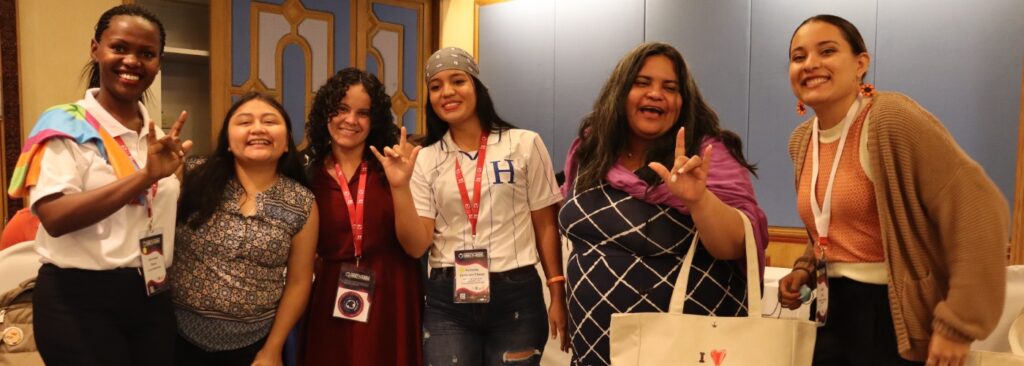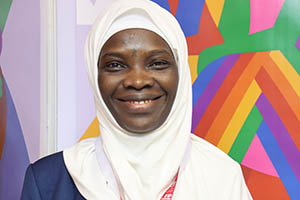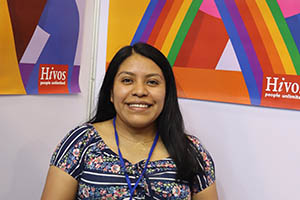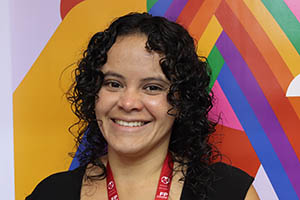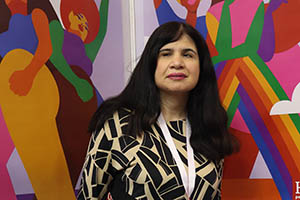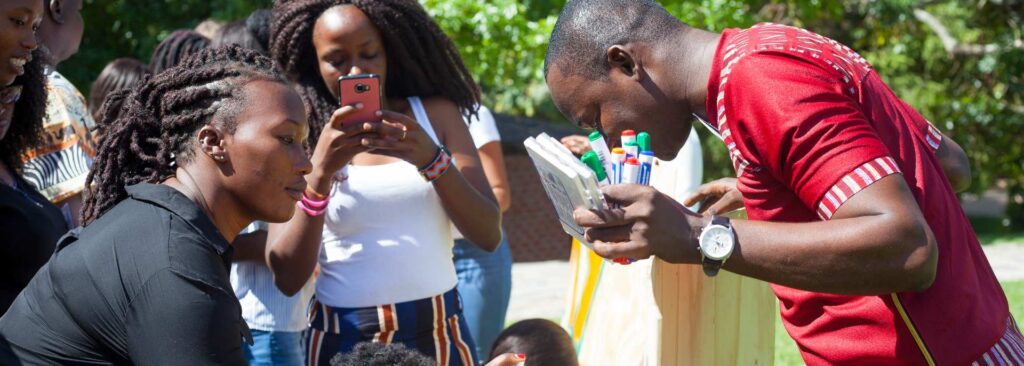By Mickey Andeweg (Hivos) and Jimena Cascante Matamoros (Restless Development)
All too often, women with disabilities are left out of conversations on sexual health and bodily autonomy. This week, the We Lead program is present at the International Conference on Family Planning in Pattaya, Thailand. During the Youth Pre-Conference, four young women with disabilities from Niger, Guatemala, Jordan and Honduras shared their experiences and statements on what needs to change.
Rahinatou Moussa Souna runs the We Lead program in Niger and talks about her personal experience. “I contracted polio when I was two months old. In Niger, having a disabled person in your family is considered a divine curse. Despite this stigma, my parents gave me special attention by installing their values in me. Having grown up with a disability, society did not expect me to go to school. But my parents insisted on my education and I worked twice as hard as anyone else.”
Lack of access and autonomy
“When it comes to family planning, women like us are not consulted,” Rahinatou continues. “Most family planning services are simply not accessible to women with disabilities. Disabled women are not allowed or expected to have sex. In most cases, partners will be chosen for them in forced marriages, usually with men who also have disabilities or who are considered “less”, what families consider equal to these women.
Floridalma Raxtun, who works for the We Lead program in Guatemala, explains how the program reaches out to young women. “We Lead has allowed us to expand our work to more rural areas.” As an indigenous woman with a disability, she knows best how to reach her community. “We provide workshops on topics such as menstruation and sexual and reproductive rights. We start our work with the concept of self love. First, we address issues of societal norms of beauty. From there, we lead the conversations into topics on reproductive justice.”
“Families keep us in a bubble, they keep us infantilized and they don’t understand that we also grow up and fall in love,” says Keylin Ivani Escalante Vargas from Colectiva Mariposa 88 HN in Honduras. “Women with disabilities are seen as children. They don’t see that we are also looking forward to those things in our lives.”
Time for change
Similar stories and barriers are experienced in Jordan. Rawan Barakat explains how physical and speech therapy are very expensive in the Jordanian context. Quality services can cost between 2000 and 4000 dollars per month. With her movement the IBNI Campaign, Rawan is urging the government to offer these services for free. After the former Minister refused a meeting to receive their petition, IBNI Campaign mobilized their support base and sent more than 10,000 messages to the Minister’s phone. After this, he agreed to meet with them.
Forced sterilization of women with disabilities is a human rights violation the We Lead program sees across different regions. In Jordan, doctors can make this decision without consulting the women.
Keylin explains that emergency contraceptives are forbidden by law in Honduras. Even when a young woman is abused, she is forced to carry out the pregnancy. In many families, sterilization is seen as the only option. ‘We are fighting to make emergency contraceptives available for everyone. It will be difficult, but we are in this together.’
We Lead will continue its efforts to put young women at the center of the conversation on family planning and SRHR. As Floridalma says: ‘It shouldn’t be someone else speaking for us, it should be us at the table.’
We Lead is an innovative and far-reaching program that aims to strengthen the influence and position of young women whose sexual and reproductive health and rights (SRHR) are neglected the most. It targets young women and adolescent girls who: live with HIV; face vulnerability and discrimination; live with a disability; and/or are affected by displacement. We Lead is a five-year program, funded by the Dutch Ministry of Foreign Affairs. Consortium partners are: Positive Vibes, Restless Development, Marsa, FEMNET, the Central American Women’s Fund, and Hivos as lead party. M&C Saatchi World Services is our technical partner.

